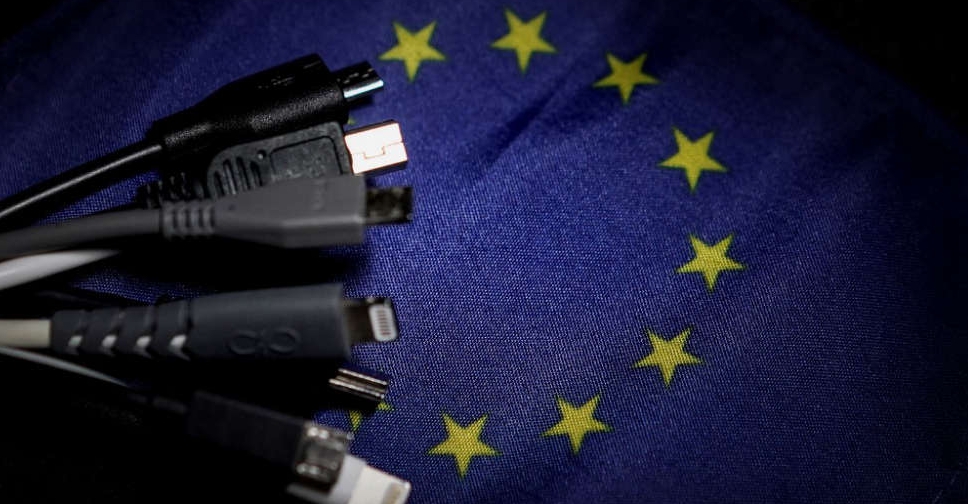
The European Union aims to have a common charging port for mobile phones, tablets and headphones under a European Commission proposal presented on Thursday in a world first.
The move is likely to impact iPhone maker Apple more than its rivals.
The plan has been more than 10 years in the making, with the European Union executive touting environmental benefits and 250 million euros ($293 million) in annual savings for users.
Under the Commission's proposal, a USB-C connector will become the standard port for all smartphones, tablets, cameras, headphones, portable speakers and handheld videogame consoles.
Chargers will also be sold separately from electronic devices.
The EU executive will revise its eco-design regulation in the near future so that the external power supply is interoperable, which is the last step for a common charge.
The Commission said it was not targeting Apple and only acted because companies were not able to agree on a common solution despite a decade of talks, which have reduced the number of mobile phone chargers to three from 30.
Apple pushed back against the proposal.
"We remain concerned that strict regulation mandating just one type of connector stifles innovation rather than encouraging it, which in turn will harm consumers in Europe and around the world," the company said in a statement.
It also voiced concerns about the 24-month transition period for companies to comply with the legislation once it is adopted.
Commission industry chief Thierry Breton pointed to the ungainly sight of multiple charging cables.
"My job is to kill off these sea snakes whenever I can," he told a news conference.
Breton also dismissed Apple's comments as old refrains.
"I have known these companies for years. Every time we put (forward) a proposal, they start to say 'oh, it will be against innovation'. No, it's not against innovation, it's not against anyone. Like everything the Commission does, it's for consumers," he said.
IPhone and Android users have long complained about having to use different chargers for their phones.
The former is charged from a Lightning cable while Android-based devices are charged using USB-C connectors.
Half the chargers sold with mobile phones in 2018 had a USB micro-B connector, while 29% had a USB-C connector and 21% a Lightning connector, according to a 2019 Commission study.
The proposal needs the green light from EU member states and EU lawmakers following which companies will have two years to adapt their devices.

 UK inquiry finds 'chilling' cover-up of infected blood scandal
UK inquiry finds 'chilling' cover-up of infected blood scandal
 Iranian President Raisi killed in helicopter accident, state media says
Iranian President Raisi killed in helicopter accident, state media says
 ICC prosecutor seeks arrest warrants for Israeli, Hamas leaders
ICC prosecutor seeks arrest warrants for Israeli, Hamas leaders
 Assange given permission to appeal against US extradition
Assange given permission to appeal against US extradition
 Israel intends to broaden Rafah sweep, Defence Minister tells US
Israel intends to broaden Rafah sweep, Defence Minister tells US




